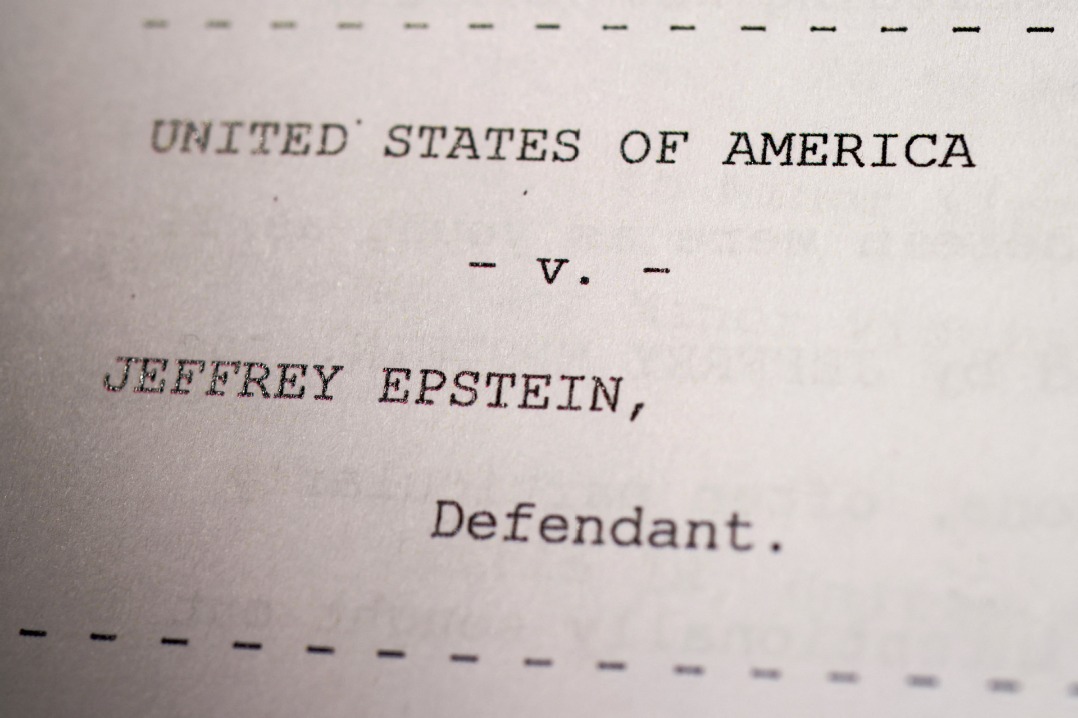BRI can empower Africa's women and young people

For decades, women and young people in Africa have sounded the clarion call for the continent's decision-makers to tilt the balance of the scale in favor of progressive gender inclusion and sustainable development initiatives at the national, regional and continental levels.
As it stands, Africa will not realize its development aspirations if women and young people continue to face barriers such as discriminatory social and cultural norms, limited access to high-quality healthcare and education, financial services, economic opportunities, and information and technology.
To address these challenges, the African Union Commission recently unveiled a $20 billion initiative that seeks to empower women and young people by providing financing opportunities as well as employment for at least 1 million African women and young people by 2030.
The initiative is a step in the right direction. However, the United Nations estimates that the number of people in the 15-to-24 age group in Africa will increase by about 6 million each year over the next decade. This growing number of young people, if not well planned for, will render the development aspirations of the AU's Agenda 2063 a pipe dream.
To mitigate the looming crisis, the AUC, through its Women, Gender and Youth Directorate, needs to establish bilateral and multilateral cooperations with like-minded civilizations, such as China, whose initiatives like the Forum on China-Africa Cooperation and the Belt and Road Initiative have transformed the continent of Africa to achieve world-class infrastructure development.
Having no need to reinvent the wheel, the Women, Gender, and Youth Directorate needs to infuse its key actions and recommendations with the progress, contributions and prospects of the BRI. This will not only unlock the targeted $20 billion, but will also solve the gender inequality question.
For instance, on policy consultation, Africa is not void of impeccable protocols and strategies, such as the AU Strategy for Gender Equality and Women's Empowerment, the African Charter on the Rights and Welfare of the Child, the Protocol to the African Charter on Human and Peoples' Rights on the Rights of Women in Africa (Maputo Protocol), and the Solemn Declaration on Gender Equality in Africa. Thus, the AUC needs to implement the protocols and strategies linking them with existing cooperation agreements that Beijing has signed with the approximately 46 member states of the African Union. This will ensure policy coherence and harmony.
On infrastructure connectivity, the AUC needs to negotiate with individual countries to ensure that women and young people are considered for job opportunities when constructing cross-border infrastructure projects. This will not only create more than the targeted 1 million jobs by 2030. but will also enhance capacity building for the continent's women and young people, making them skilled citizens who will create future jobs and bridge the unemployment gap.
On trade connectivity, the African Union indicates that women account for 70 percent of informal cross-border traders. Most of these women play a major role in the agricultural economy. However, women who are farmers have less access to essential inputs-credit, fertilizers, land and new technologies. Through the African Continental Free Trade Area and the BRI, women can benefit from initiatives such as women's economic empowerment programs and rural revitalization initiatives that will connect them to export food markets.
On financial connectivity, World Bank reports indicate that more than 70 percent of African women and young people are excluded by financial institutions or are unable to receive financial services, such as loans, credit and other institutional services. However, financial integration is an important pillar of the BRI.
The AUC can partner with the China-IMF Capacity Development Center and the Research Center for the Belt and Road Financial and Economic Development for tailor-made financial services for women and young people to shift most of them from micro, small and medium-sized enterprises to large-scale enterprises.
Regarding people-to-people connectivity, more focus needs to be put on scholarships and training. More women and young people need to be at the forefront in receiving scholarships, especially in areas of science, technology, engineering, and mathematics. These will meet the needs of women and young people, making them innovative and competitive for current and future employment opportunities.
The African Union needs to leverage all available global public goods to ensure that sustainable development is achieved on the continent, and the BRI is the surest and fastest way to achieve this goal.
The author is executive director of the China-Africa Center at the Africa Policy Institute in Kenya.

































